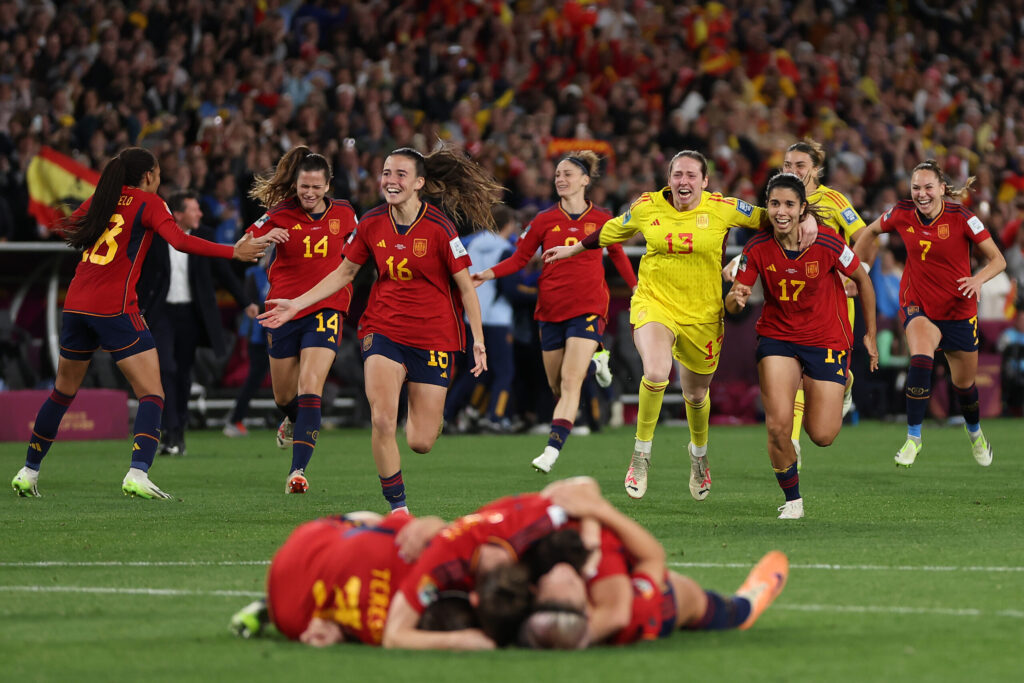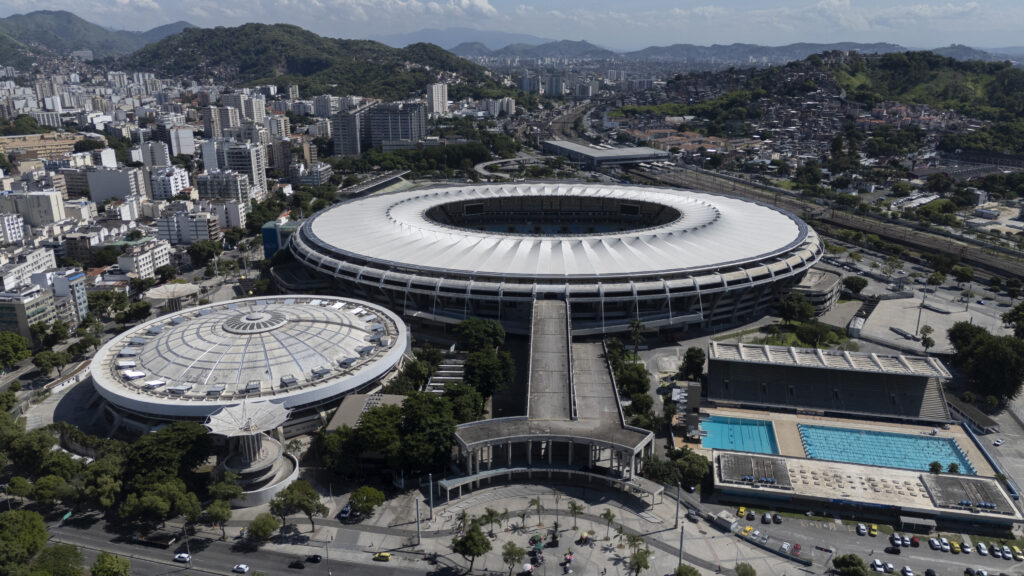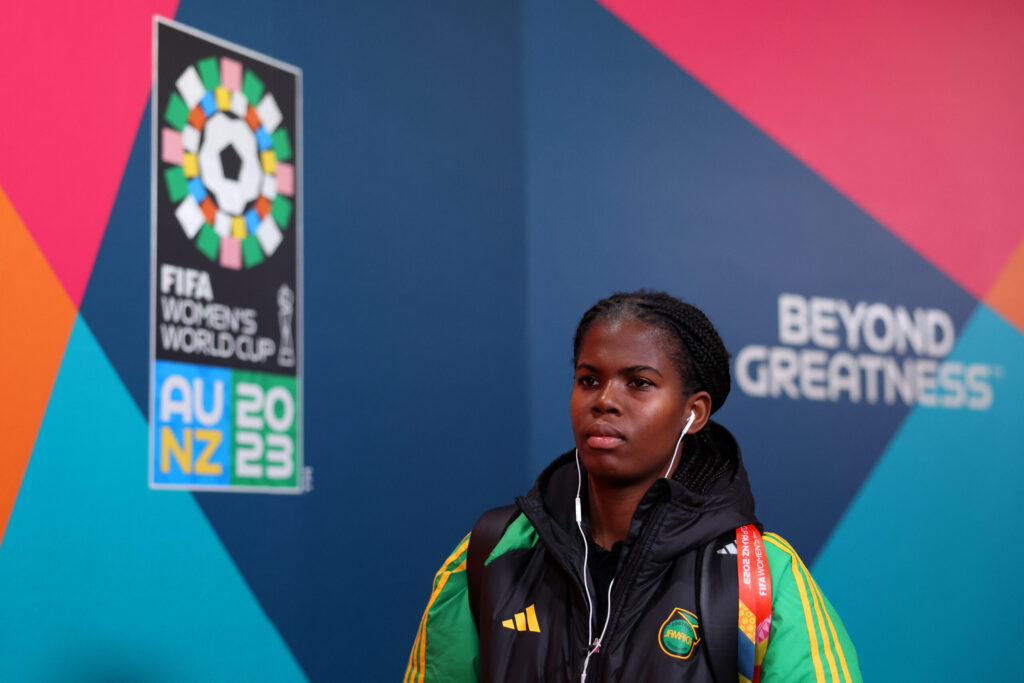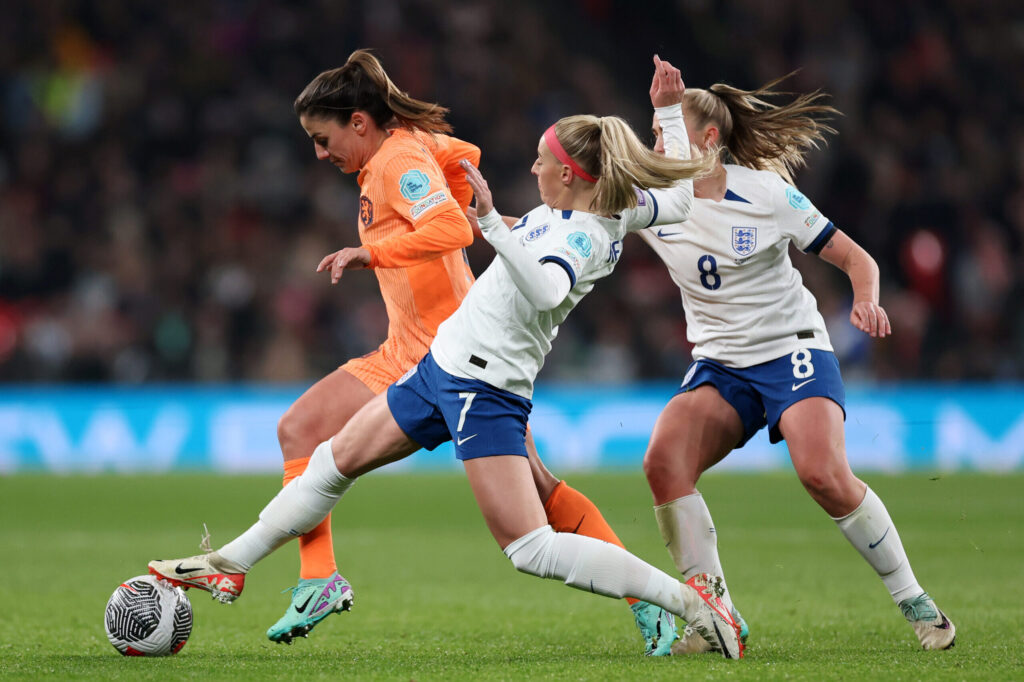The sleeping giant of Spanish women’s soccer is awake. After World Cup wins at the U-17 and U-20 levels and ongoing dominance in European club competition, Spain has captured its first World Cup title at the senior level, with Olga Carmona’s early strike lifting La Roja to a 1-0 win over England on Sunday.
In some ways, Spain’s ascension to the top of the world stage happened very quickly. They qualified for their first Women’s World Cup for the first time in 2015, finishing last in their group with only one point to show for their efforts. They showed impressive gains in 2019, taking the eventual World Cup champions, the U.S. women’s national team, to the brink in the Round of 16.
To win the whole tournament in just three cycles is a feat, but no one can say that Spain did not lay the groundwork. Spain won their first U-17 World Cup title in 2018 and repeated the feat in 2022. Last year, they also added a U-20 World Cup win to their trophy case, taking down Japan in a preview of what will likely be many first-team battles to come. Japan defeated Spain 4-0 in the 2023 World Cup group stage and produced the Golden Boot winner in Hinata Miyazawa, before being upset in the quarterfinals by Sweden.
In two of the last three years, FC Barcelona has won the UEFA Women’s Champions League, reaching the final in three consecutive tournaments. Barcelona represents the peak of what Spain can accomplish, with a roster that feeds into the team’s chemistry at the international level. Barcelona doesn’t only benefit Spainl England starters Keira Walsh and Lucy Bronze also play their club soccer in Catalonia, adding familiarity to a final between two nations that already know each other well.
But despite all these advantages at multiple levels of the soccer pyramid, a first-ever World Cup win for Spain was never guaranteed. They came close to bowing out multiple times in this tournament, passing around the opposition without registering enough shots on target and folding mentally at times when taking the lead.
On Sunday, a combination of the right mentality and preparation came together, spurred by the winner of Best Young Player of the Tournament. Salma Paralluelo had been a force for Spain off the bench in the last two rounds, and in the final, the 19-year-old got a well-earned start. Paralluelo is a product of those Spain teams that dominated the youth levels, winning both a U-17 and a U-20 World Cup on her way to the brightest international spotlight. The Barcelona forward has an uncanny ability to cut through Spain’s frivolity on the ball, turning midfield possession and immaculate first touches into actually dangerous attacks.

Time and time again on Sunday, Spain was able to pass around England’s disciplined press to switch the point of their attack to the open player on the weak side of the wings. Bronze and Rachel Daly had a difficult game, with the latter being subbed off at halftime in favor of keeping Spain from scoring another goal over dynamism in the attack.
But one goal turned out to be all Spain needed, in a flipped script from their elimination at the hands of England in the 2022 European Championship. Instead of becoming flustered in possession, Spain never kept their foot off the ball, continuing their methodical build-ups and keeping calm heads as England became increasingly panicked late in the second half.
While the style and flair varied — especially in an epic midfield performance from Golden Ball winner Aitana Bonmatí, Jenni Hermoso and Teresa Abelleira — Spain’s mental fortitude was reminiscent of the 2019 USWNT, who kept their same cool against Spain on their way to a fourth World Cup title.
A goal that Olga Carmona will never forget 👏👏
— FOX Soccer (@FOXSoccer) August 20, 2023
Spain takes the lead in the first half of the Final 🇪🇸 pic.twitter.com/NiMRCF0qX4
There’s no doubt that, as a country, Spain has far deeper soccer ties than the U.S. But if Spain has a chance at building a women’s soccer dynasty, their comparisons to the USWNT might need to not stop at the final whistle. It’s no secret that Spain’s success has come at a cost, after 15 players rebelled against their manager and federation to sit out key friendlies in the lead-up to the World Cup. For players at home like Mapi Leon and Patricia Guijarro, who stuck to their principles in the face of immense pressure to return to the fold, this win will likely always have an asterisk.
Spain’s football federation will likely see this World Cup win as justification for their loyalty to manager Jorge Vilda, while the fight for recognition and better resources has only just begun for the players who were able to weave gold out of a tense situation. Succeeding in spite of managerial mediocrity is a longtime legacy in women’s soccer, especially with a player pool as deep as Spain’s. But at some point, federation dysfunction will dampen what has the opportunity to be a new era in the women’s game.
Because if there’s one other lesson that can be learned from the U.S., it’s that all the groundwork in the world can be undermined by complacency at the federation level, and there will never be another tournament where a world power can cruise their way to the trophy. In fact, it’s possible that the era of dynasties is already over, even if Spain’s has just begun.
No matter the management, the main takeaway from the 2023 World Cup champions should be that the pipeline of Spanish talent is wide open and, with the explosion of women’s soccer’s popularity, will not be closing anytime soon. Consider the rest of the world on notice.
Claire Watkins is a Staff Writer at Just Women’s Sports. Follow her on Twitter @ScoutRipley.




